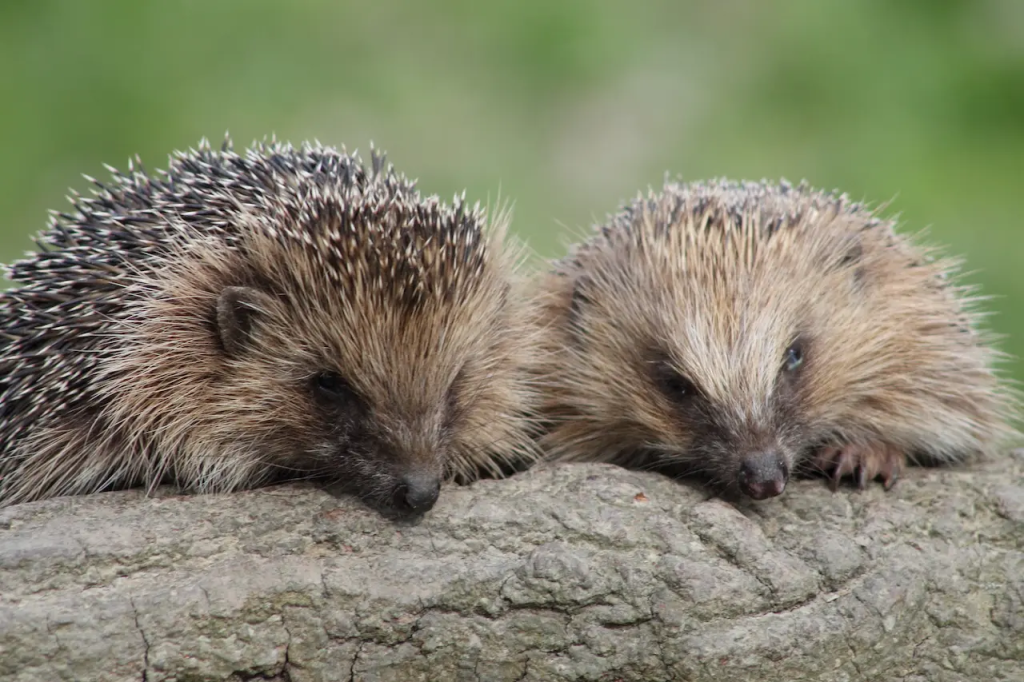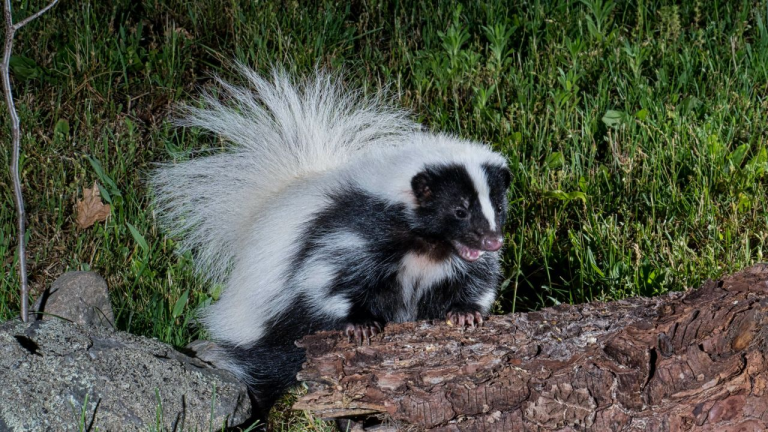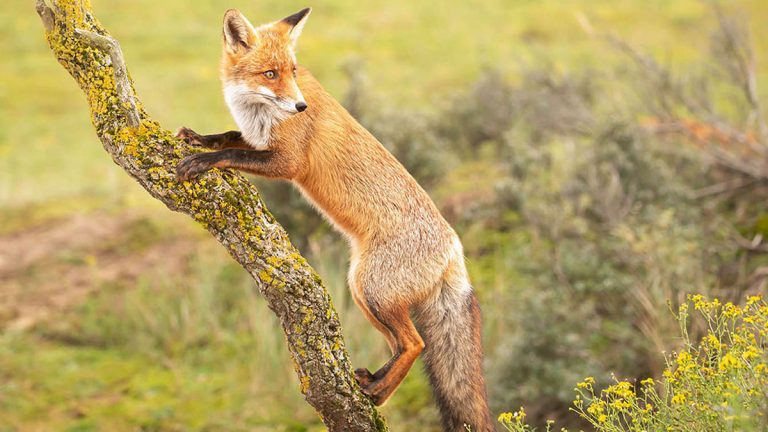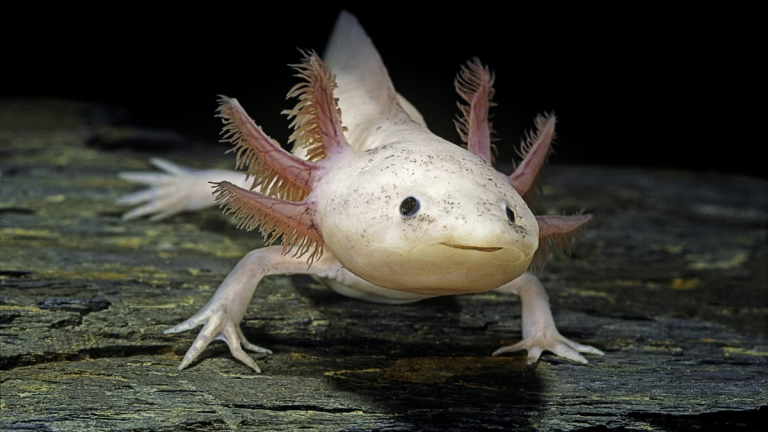Hedgehog Diet Guide: What Do Hedgehogs Eat for a Healthy Life
Hedgehogs are fascinating, nocturnal creatures with unique dietary needs. Understanding what do hedgehogs eat is essential for their health, growth, and longevity. Whether you are a pet owner or simply curious about wild hedgehogs, this comprehensive guide covers everything you need to know: natural diet, captive diet, feeding tips, seasonal considerations, and frequently asked questions.
Short Answer: What Do Hedgehogs Eat?
Hedgehogs are primarily insectivores, consuming mainly insects, worms, and other small invertebrates. They are also opportunistic omnivores, occasionally eating fruits, vegetables, eggs, or small vertebrates. In the wild, their diet includes:
- Insects: beetles, caterpillars, crickets, grasshoppers, and larvae
- Worms, slugs, and snails
- Fruits and berries
- Bird eggs and small vertebrates occasionally
In captivity, a healthy hedgehog diet consists of:
- High-quality hedgehog or insectivore food
- Insects such as mealworms, crickets, and waxworms (as treats)
- Cooked lean meats and eggs
- Safe fruits and vegetables in moderation
Understanding Hedgehog Nutrition
Hedgehogs may be small animals, but their nutritional needs are surprisingly complex. To stay healthy, active, and free from preventable diseases, hedgehogs require a balanced and nutrient-dense diet that reflects what they would naturally consume in the wild. Their bodies are designed to process high-protein, moderate-fat, and fiber-rich foods, mostly sourced from insects. When these dietary components are provided in the correct proportions, hedgehogs can maintain a strong immune system, healthy weight, stable energy levels, and proper organ function. Conversely, an unbalanced diet often leads to obesity, digestive issues, poor muscle development, and even life-threatening conditions such as metabolic bone disease (MBD).
Because hedgehogs are insectivores, their diet in captivity must mimic the nutrient profile they would obtain from beetles, worms, and other invertebrates. Insects offer a unique combination of protein, chitin (fiber), natural fats, and essential micronutrients that are not always found in commercial foods. Without careful planning, a captive hedgehog can easily become deficient in certain nutrients or overloaded with unnecessary fats and carbohydrates. Understanding each essential nutrient is the key to building a complete and appropriate diet.
Essential Nutrients for Hedgehogs
Protein
Protein is the most critical component of a hedgehog’s diet. It supports:
- Growth and development
- Muscle maintenance
- Tissue repair and cellular regeneration
- Immune system function
- Consistent energy levels
In the wild, hedgehogs obtain protein primarily from insects such as beetles, caterpillars, larvae, crickets, and worms. These provide not only high-quality amino acids but also additional micronutrients embedded in their exoskeletons and tissues.
For pet hedgehogs, protein sources may include:
- Commercial hedgehog food
- Insects (live or dried) such as mealworms, superworms, crickets, roaches, silkworms
- Cooked lean meats like chicken breast, turkey, or unseasoned ground beef
- Boiled eggs in small portions
The ideal protein content in their diet should range between 28–35%. Too little protein leads to weakness, dull spines, and stunted growth. Too much protein, especially from fatty insects, can contribute to digestive stress or obesity.
Fat
Fat provides hedgehogs with long-lasting energy and helps regulate body temperature. However, hedgehogs naturally require only moderate amounts of fat, and excess intake can quickly lead to weight gain. Obesity is one of the most common health issues in captive hedgehogs, often caused by overfeeding mealworms or allowing unrestricted access to high-fat foods.
Problems associated with excessive fat include:
- Obesity and reduced mobility
- Liver stress and fatty liver disease
- Heart strain
- Increased risk of diabetes-like metabolic issues
An ideal diet contains 10–15% fat, mostly from safe insect sources. Waxworms and superworms should be occasional treats due to their high-fat content.
Fiber
Fiber is essential for maintaining a healthy digestive system. Unlike herbivores, hedgehogs do not process plant fiber efficiently, so their primary source of fiber comes from chitin, the exoskeleton material in insects. This type of fiber:
- Supports smooth digestion
- Prevents constipation
- Helps regulate stool consistency
- Maintains gut health and microbiome balance
Additional fiber can come from safe fruits and vegetables, such as pumpkin, squash, or small amounts of apples and berries. However, too much plant fiber can upset the stomach, so it should be offered sparingly.
Calcium & Phosphorus
Calcium and phosphorus are vital for bone development, muscle function, and neurological health. Hedgehogs require a proper calcium-to-phosphorus ratio, ideally 1.5:1, to ensure efficient calcium absorption. An imbalance—especially too much phosphorus and too little calcium—can cause:
- Metabolic Bone Disease (MBD)
- Weak or brittle bones
- Jaw deformities
- Difficulty walking, wobbling, or tremors
- Pain and decreased mobility
In the wild, hedgehogs obtain calcium naturally from certain insects, small vertebrates, and snail shells. In captivity, calcium must come from:
- High-quality hedgehog food
- Calcium-rich insects like phoenix worms or black soldier fly larvae
- Occasional calcium supplementation (under guidance)
Both calcium deficiency and calcium excess are dangerous, so the goal is balance, not over-supplementation.
Vitamins & Minerals
Vitamins and minerals play a supporting yet crucial role in hedgehog nutrition. They ensure proper metabolism, nerve function, skin health, and immune response. Key nutrients include:
- Vitamin E – Supports muscle health and prevents oxidative damage
- B-complex vitamins – Aid digestion, metabolism, and energy production
- Vitamin A – Essential for vision and skin health (but toxic in excess)
- Magnesium, zinc, and iron – Support enzyme activity, blood health, and cellular repair
- Trace minerals – Maintain balanced bodily functions and prevent nutrient deficiencies
A high-quality, species-appropriate commercial hedgehog food typically provides these micronutrients. Supplementation is rarely necessary unless recommended by a veterinarian.
Wild Hedgehog Diet
Wild hedgehogs are opportunistic feeders. Their diet depends on season, habitat, and food availability.
Insects and Larvae
- Beetles, caterpillars, crickets, grasshoppers, moths
- Rich in protein and chitin, aiding digestion
Worms and Slugs
- Earthworms provide protein and moisture
- Slugs and snails supply calcium
Fruits and Vegetables
- Wild berries (strawberries, blackberries, blueberries)
- Fallen apples or pears
- Leafy greens available in the habitat
Occasional Protein Boost
- Bird eggs and small rodents
- Amphibians or carrion rarely
Hedgehogs adapt their diet seasonally. In late summer and autumn, fruits and berries help build fat reserves for hibernation.
Captive Hedgehog Diet
Pet hedgehogs need a well-balanced diet to mimic their natural nutritional intake.
Commercial Hedgehog Food
- Formulated to meet protein and fat requirements
- High protein (28–35%), moderate fat (10–15%)
- Fortified with essential vitamins and minerals
- Avoid foods with excessive grains or fillers
Insects as Treats
- Mealworms, crickets, waxworms (in moderation)
- Provide high-quality protein and enrichment
Lean Protein
- Cooked chicken, turkey, or lean beef
- Hard-boiled eggs
- Avoid processed or seasoned meats
Fruits and Vegetables
- Apples, berries, bananas (in small amounts)
- Cooked carrots, peas, or sweet potatoes
- Introduce new foods gradually
Foods to Avoid
Hedgehogs have sensitive digestive systems. Avoid:
- Dairy products
- Chocolate and caffeinated foods
- Citrus fruits
- Raw potatoes, onions, garlic
- Sugary or processed human foods
Feeding Tips for Pet Hedgehogs
- Feed small, frequent meals instead of one large portion
- Use shallow dishes for easy access
- Monitor weight and body condition
- Provide fresh water daily
- Rotate protein sources for variety
- Avoid feeding human junk food
Seasonal Feeding Considerations
Hedgehogs experience different nutritional needs throughout the year, especially wild hedgehogs that must adapt to changing temperatures, food availability, and energy demands. Understanding how diet shifts with each season helps owners provide more natural, biologically appropriate feeding patterns. Although pet hedgehogs do not always follow strict seasonal cycles, their bodies are still influenced by instinctive rhythms, temperature changes, and light exposure. Below is a detailed look at how hedgehog feeding varies across spring, summer, autumn, and winter.
Spring & Summer
As hedgehogs emerge from winter torpor or reduced activity, their bodies require high levels of protein and energy to rebuild muscle mass and replenish depleted reserves. Spring and summer are the most active periods for wild hedgehogs, involving:
- Foraging at night
- Traveling long distances to find mates
- Increased metabolism
- Growth, especially for young hedgehogs born in early summer
During these months, their diet naturally shifts toward protein-rich insects, which are abundant in warm weather. They rely on:
- Beetles and larvae
- Earthworms
- Crickets and grasshoppers
- Caterpillars and moth larvae
- Occasional smaller vertebrates or eggs
For pet hedgehogs, spring and summer are good times to offer:
- Lean meats (boiled chicken or turkey)
- A wider rotation of insects
- High-protein commercial hedgehog food
The goal during these seasons is to maximize high-quality protein intake while keeping fat levels controlled, ensuring healthy energy output without excessive weight gain.
Autumn
Autumn is the most crucial feeding season for wild hedgehogs. As temperatures begin to drop, their bodies instinctively prepare for winter hibernation by building up fat reserves. These fat stores act as their primary energy source during long periods of fasting.
Because insects become less available in cooler weather, hedgehogs naturally shift toward calorie-rich, carbohydrate-inclusive foods such as:
- Wild berries (blackberries, blueberries, raspberries)
- Fallen apples and pears
- Soft fruits and energy-dense plant materials
- Higher-fat insects when available
For captive hedgehogs, autumn feeding may include:
- Slightly increased portions (without overfeeding)
- Safe fruits or vegetables such as pumpkin, squash, apples, or carrots
- Occasional higher-fat insects (waxworms, superworms) but only in moderation
The goal is controlled weight gain, providing enough energy for natural instincts while preventing unhealthy obesity. Even domesticated hedgehogs, which usually do not hibernate, may experience a natural drop in activity as daylight changes, so adjusting diet appropriately can support their seasonal biology.
Winter
Winter brings the most dramatic shift in hedgehog feeding behavior. Wild hedgehogs typically hibernate during the cold months, entering a state of reduced metabolism and energy conservation. During true hibernation:
- Hedgehogs do not eat
- Their heart rate, breathing, and body temperature drop significantly
- They rely entirely on the fat reserves built in autumn
For pet hedgehogs, true hibernation is not recommended and can be dangerous, especially in unstable indoor environments. However, some hedgehogs may show:
- Lower appetite
- Reduced activity
- Increased sleeping hours
- Sluggish reactions when exposed to cold temperatures
If a pet hedgehog remains awake during winter, it still requires consistent but controlled feeding, focusing on:
- Balanced protein
- Moderate fat
- Regular hydration
- Stable temperatures to prevent accidental hibernation attempts
Owners should monitor winter behavior closely. Sudden fasting, lethargy, or attempts to curl up for prolonged periods may signal a hedgehog entering a potentially unsafe hibernation state, requiring temperature adjustment or veterinary guidance.
Hedgehog Eating Behavior
- Hedgehogs are nocturnal; feeding mainly occurs at night
- They rely on keen smell to locate insects
- Hedgehogs may be picky eaters; offering variety encourages healthy nutrition
Signs of a Healthy Diet
- Active and alert behavior
- Consistent weight and body condition
- Healthy coat and skin
- Normal stool (firm, not watery or soft)
FAQ About Hedgehog Diet
Q1: Can hedgehogs eat cat or dog food?
Yes, hedgehogs can eat high-quality cat or dog food, but only under specific conditions. The food must be high in protein (30–40%), low in fat (10–15%), and free from unnecessary fillers such as corn, soy, artificial coloring, and excessive grains. These fillers can contribute to obesity, digestive discomfort, and long-term nutritional imbalance.
While many owners use premium cat food as a convenient option, specialized hedgehog food is always the better choice. It is formulated to match a hedgehog’s natural insectivorous diet, offering the correct balance of protein, fiber, and essential nutrients like taurine. If you must use cat or dog food, ensure that meat is listed as the first ingredient and that the kibble size is small enough for your hedgehog to chew comfortably.
Q2: How often should I feed my hedgehog?
Adult hedgehogs generally thrive on one main meal per day, and the ideal feeding time is in the evening, aligning with their nocturnal activity cycle. Most hedgehogs start exploring and hunting for food after dusk, so scheduling their feeding at night supports natural behavior and digestion.
Juvenile hedgehogs, on the other hand, have higher energy demands due to rapid growth and faster metabolism. They may require two smaller meals per day — one in the morning and one in the evening. This helps maintain steady energy levels and prevents weight loss.
Regardless of age, always monitor your hedgehog’s body condition. Hedgehogs can become overweight easily, so start with recommended portions and adjust gradually based on activity level and weight.
Q3: Can hedgehogs eat fruits every day?
No. Even though hedgehogs enjoy fruit, it should only be offered 1–2 times per week. Fruits are high in natural sugars, which can lead to diarrhea, obesity, and insulin-related issues if consumed too frequently.
Safe fruits include apples, bananas, melon, berries, and pears — always cut into small pieces to prevent choking. Avoid hard seeds, pits, citrus fruits, and overripe fruits. Think of fruit as a small treat, not a dietary staple. The bulk of a hedgehog’s diet should always come from protein-rich foods such as insects or high-quality hedgehog kibble.
Q4: Are mealworms healthy for hedgehogs?
Mealworms are a favorite snack for most hedgehogs, and for good reason: they are protein-rich, tasty, and stimulate natural foraging behavior. However, mealworms are also high in fat and phosphorus, which can disrupt calcium balance if overfed.
Because of this, mealworms should be considered treats, not main food sources. Offering a few dried or live mealworms a few times per week is perfectly fine and can help with bonding or training. For healthier everyday insect options, choose crickets, dubia roaches, silkworms, or black soldier fly larvae, which offer better nutritional profiles.
Q5: Can I give my hedgehog milk?
No — hedgehogs are lactose intolerant, meaning they cannot properly digest the lactose found in dairy products. Giving a hedgehog cow’s milk can cause severe digestive upset, including bloating, gas, stomach pain, and diarrhea.
If you need to provide hydration or encourage eating, use fresh clean water only. For orphaned baby hedgehogs (hoglets), only specialized kitten milk replacer (KMR) or wildlife-approved formulas should be used — never regular milk.
Q6: What if my hedgehog refuses food?
A temporary loss of appetite can happen due to stress, changes in environment, temperature fluctuations, or dietary transitions. If your hedgehog refuses food for more than 24 hours, try offering:
- live insects like crickets or mealworms
- a small amount of cooked lean chicken or turkey
- mashed fruits they normally enjoy
- softened kibble moistened with warm water
If refusal continues, it could signal a more serious issue such as dental problems, parasites, hibernation attempts, or illness. In this case, a veterinary check-up is strongly recommended, especially if your hedgehog appears lethargic, cold, or unusually quiet. Early intervention is essential because hedgehogs can decline quickly once they stop eating.
Expert Advice
Veterinarians and hedgehog nutrition experts emphasize:
- Avoid obesity through controlled portions
- Provide variety for enrichment
- Monitor weight and coat condition regularly
- Fresh water is essential at all times
- Avoid toxic human foods and sugary treats
Proper nutrition ensures hedgehogs live 6–8 years in captivity with optimal health and activity levels.
Conclusion
Understanding what do hedgehogs eat is essential for both wild and pet hedgehogs. By providing a balanced diet rich in protein, fiber, and essential nutrients, while avoiding harmful foods, you can ensure your hedgehog thrives. Seasonal considerations, proper feeding habits, and regular health monitoring are key to a long, happy, and healthy life for your spiny companion.
Feeding hedgehogs may seem simple, but their unique dietary needs require careful planning. Following this guide will help you maintain healthy, active, and happy hedgehogs, whether in the wild or as beloved pets.










